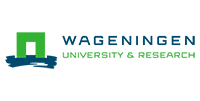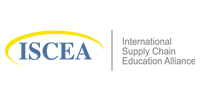Circular Economy Courses
Take free online circular economy courses form top institutions and universities on edX today!

learn circular economy
What is a Circular Economy?
The natural processes of any economy produce waste. That waste has a significant impact on the environment and on the companies which produce it. We have products we need, but the cost of creating and maintaining them can be detrimental to the health and wellbeing of both society and the organization. In the traditional view of a linear economy, products are made and then thrown away. The environmental impact of this view has manifested in climate issues and sustainability problems. A circular method hopes to improve this impact by closing the waste loop.
Learn about Circular Economy Concepts
Value creation doesn't go in a single direction. When we manage our resources better, it reduces our impact and creates more sustainable business models. Raw materials are precious and increasingly fraught with issues as we mine and reap them to our detriment. How we understand our waste could be the key to transitioning to sustainable business models that are socially responsible . It takes a mental shift to move from the traditional linear model. Learning those case studies and understanding the underlying value chain could give you a key advantage in your job search. Companies are looking to reduce their negative impact on society and eliminate waste. You could be the one to build a sustainable system.
Circular Economy Courses
edX has courses offered in partnership with leading institutions to help get you prepared for the future. You can learn the fundamentals of a circular economic model through Delft. You'll learn how businesses can create value through reuse and remanufacturing while preserving our limited natural resources. Other options take you deeper into the concept, such as From Fossil Resources to Biomass with Wageningen and Waste Management from Delft. If you find that it's your chosen career path, you can apply your knowledge of cradle-to-cradle concepts with a micro-masters in Business and Economics for a Circular Economy from Delft.
Build a Career for the Future
Circular economics builds sustainability into business models. A closed-loop and an eye towards renewable energy could help us push forward with growth sustainably and respectfully, making better use of our products and resources. As our climate changes, new business models need to replace wasteful ones. Resource consumption is a 21st-century problem. With climate change and a booming population, our economic system must mimic the types of models we'd like to see. Sustainable development can be profitable and build on systems that benefit everyone. A circular economy aims to cut down on wasteful production and potentially reduce our production of greenhouse gas. Help build a world that lasts for future generations with goals that move us towards a circular economy. Circularity could be the answer to some of our most pressing issues in development, so it's time to make your mark.

















